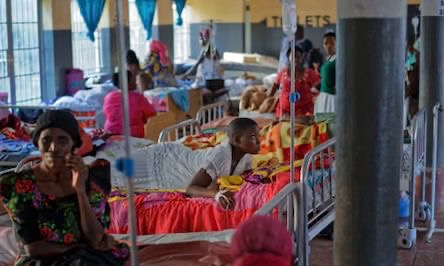Almost five in every ten Ugandans do not trust public services, according to the latest National Governance, Peace and Security Survey (NGPSS) 2024/2025 report released on Tuesday by the Uganda Bureau of Statistics (UBOS) in Kampala.
The survey, which covered 9,000 households across the country, reveals a decline in Ugandans’ trust in public institutions from 54 percent in 2017 to 47 percent in 2024/25. Public confidence in local leaders, including mayors and LC3 chairpersons, also fell slightly from 62 percent in 2017 to 59 percent.
Deputy Executive Director of UBOS, Vincent Ssenono, noted that the survey focused on quantitative data regarding citizens’ perceptions of public institutions.
“We did not delve into analysis to understand the reasons for the changes in trust. The questions were close-ended, requiring simple yes or no responses,” Ssenono said.
The survey further found that 14 percent of respondents reported having had contact with a public official and paid a bribe, while three in ten Ugandans felt they had experienced discrimination.
Despite these declines, the report highlighted some areas of improvement in public trust. Public confidence in hospitals and clinics rose to 75 percent from 69 percent in 2017, trust in Parliament increased from 47 percent to 52 percent, and the Court of Justice saw a rise from 47 percent to 56 percent. Police institutions also registered improved trust, from 46 percent in 2017 to 60 percent in 2024/25.
The Head of Demography and Social Statistics at UBOS, Sharon Apio, said that public perception of politicians responding to citizens’ concerns improved from 29 percent in 2017 to 39 percent in 2025, while MPs listening to the people increased from 32 percent in 2021 to 35 percent in 2025.
Trust in Local Council leaders rose from 65 percent to 74 percent, and confidence in traditional community leaders increased from 63 percent to 68 percent.
The survey also revealed that eight in ten Ugandans consider poverty a potential threat to national security, a slight decline from 93 percent in 2017.
Other major security concerns identified by respondents included unemployment, hunger, criminal violence, health hazards, violence against women, and evictions.
UBOS reported that Uganda’s 2024 population stands at 45.9 million, with 25.4 percent within the working-age population of 14–64 years. Of this group, only 9.4 million are employed.
Apio emphasised that while some institutions showed slight improvements in public trust, others recorded declines, highlighting the need for continued reform and engagement.
“The survey focuses on the quantitative aspects of public trust. Understanding the reasons behind these perceptions requires further qualitative research,” she said.
Officials stressed that the NGPSS statistics are critical for the implementation of Uganda’s National Development Planand for meeting Goal 16 of the Sustainable Development Goals, which focuses on peace, justice, and strong institutions.
The data provide vital insights for managing public affairs and addressing issues related to governance, peace, and security in Uganda and across Africa.


